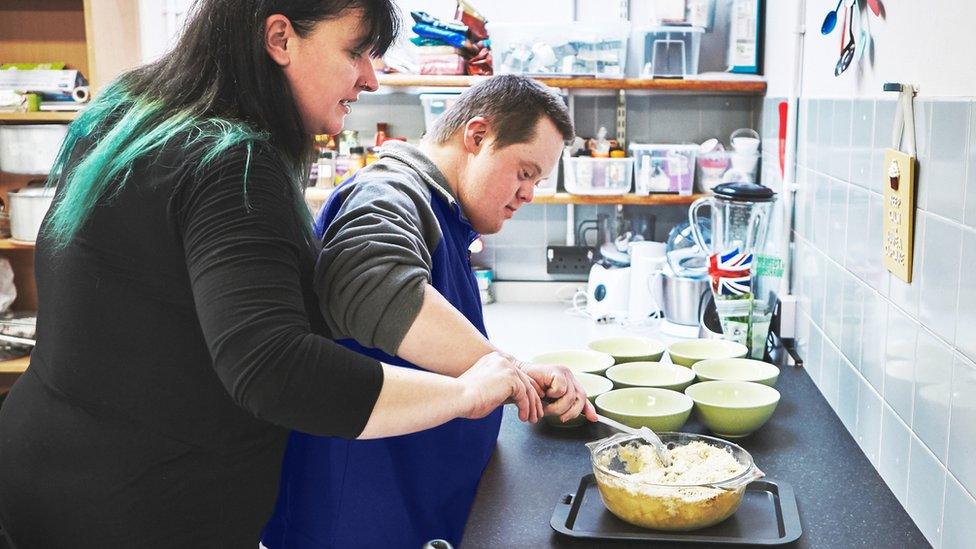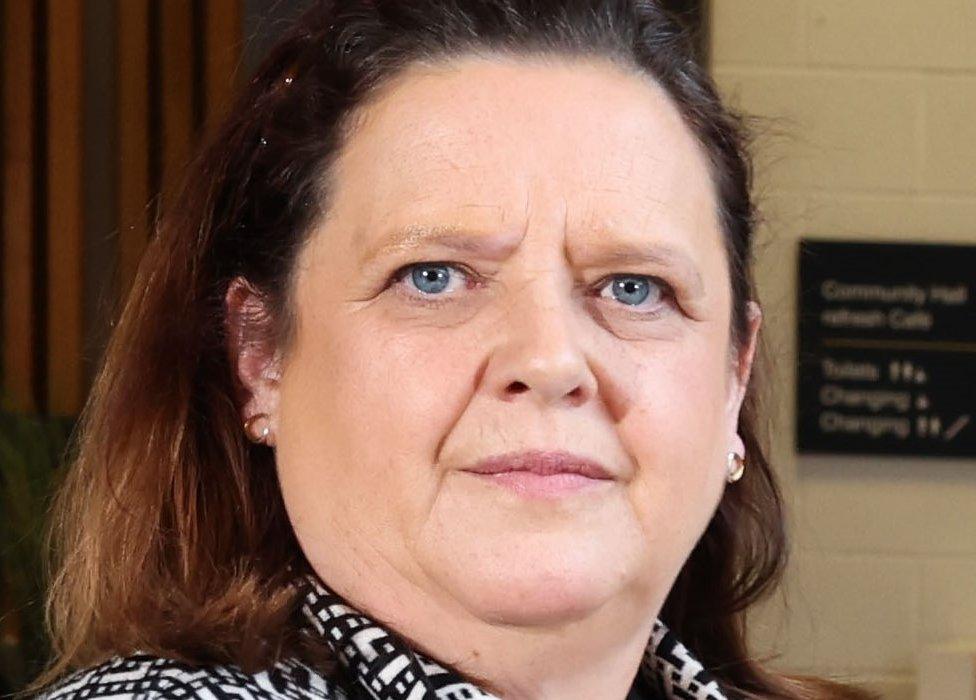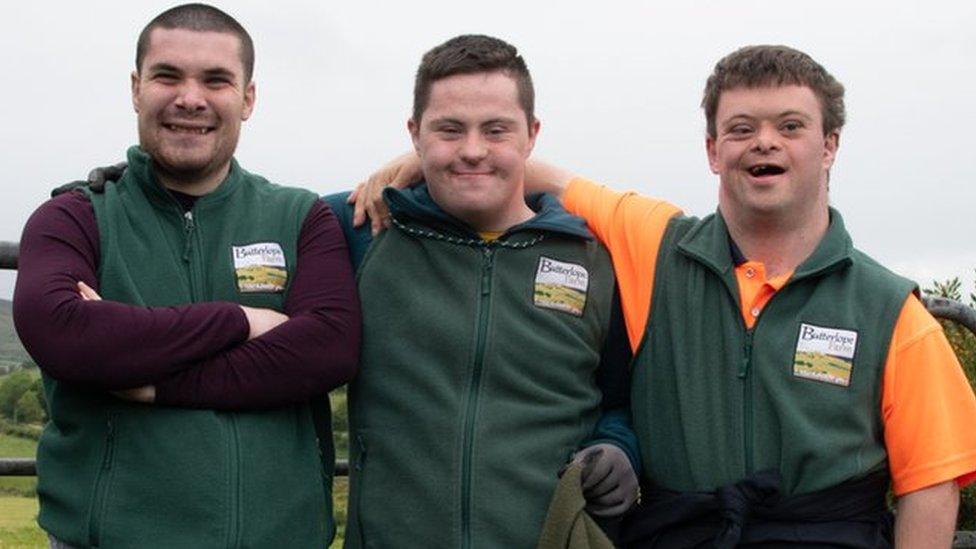NI charity funding package being finalised, government says
- Published

Many of the organisations which stand to lose EU funding help people with learning difficulties to gain workplace skills
The UK government has said a financial package is being finalised to help Northern Ireland charities facing a funding crisis at the end of March.
The announcement comes four days before money from the European Social Fund (ESF) comes to an end due to Brexit.
Levelling Up Secretary Michael Gove said he was "well aware of the need to deliver quickly".
Some charities have warned they would have to cut staff and support programmes if funding is not replaced.
It is still not clear if the UK government package will fully replace all the ESF funds.
The problem relates to the switchover from EU to UK funding and mainly applies to organisations which help people find employment.
About £40m a year of money from the ESF will come to an end on Friday.
This money was 35% match-funded from Stormont, giving £54m in total.
The UK government's Shared Prosperity Fund is due to replace the ESF funding.
'Lack of detail'
Speaking to MPs, Mr Gove said his ministerial colleague Dehenna Davison had "been working to ensure we deal with the cliff edge".
He said the total amount of spending being talked about was £26.9m.
Organisations who help people with disabilities to work warned as far back as 2019 there was a "lack of detail" about what would replace EU funding.
A leader in the sector said their warnings had been "ignored and disabled people have been abandoned".
But despite that warning four years ago, many groups do not yet know if their work will be funded on 1 April.
But although an application process for £42m available over two years took place in December 2022 and January 2023, organisations who applied have still not been told if they will receive funding.
'Most vulnerable will suffer'
Before Mr Gove's announcement, BBC News NI obtained a briefing paper from the Northern Ireland Union of Supported Employment (NIUSE) which was published in May 2019.
It warned then of "an absence of specific detail" about how the Shared Prosperity Fund would operate.

Now we are at crisis point with less than five days to go - Edyth Dunlop from NIUSE
"ESF is the primary and consistent source of funding for employment projects for disabled people in Northern Ireland," it said.
The briefing paper also warned there was a "lack of clarity" about long-term funding and that replacing ESF was "a critical issue".
The NIUSE represents a range of groups including Mencap, Disability Action, Action Mental Health and the Now Group who train and support people with disabilities to find employment.
Some groups have warned the most vulnerable people in society will suffer if services lose funding.
They have also said that hundreds of jobs in the community sector are at risk.

The 2019 policy paper highlighted concerns over loss of EU funds

Edyth Dunlop from NIUSE said the 2019 briefing paper showed the organisation had been "forewarning" both the UK government and Northern Ireland administration for years about the end of ESF funding.
"Now we are at crisis point with less than five days to go and it could have been diverted," she said.
"We have been ignored and disabled people have been abandoned.
"Often those most vulnerable are the easiest to ignore."
Northern Ireland has the lowest rate of employment for people with disabilities in the UK.
Just over a third of disabled people in Northern Ireland are in work, compared with more than half in the rest of the UK.
Ms Dunlop told BBC News NI that "it doesn't make sense to not continue vital services which address this".
"From 1 April there will be no pre-employment training for disabled people or those most vulnerable unless actions and decisions are made now," she said.
"We want to work with the local departments and develop solutions together and address the high rate of economic inactivity and disability employment gap."
Other organisations which work with groups like vulnerable young people or the long-term unemployed are also threatened by the uncertainty about funding.
The Department for the Economy (DfE) was the managing authority for ESF in Northern Ireland.
In a statement issued before Mr Gove's announcement, DfE said it "empathises with the concerns of the sector currently supported under the NI European Social Fund (ESF) Programme".
"The UK government has committed to fully replace EU structural funds through their Shared Prosperity Fund (SPF)," they continued.
"We have been clear with all providers for some time now that we have no ability to finance this activity beyond March this year when the SPF is due to start."
Related topics
- Published21 March 2023

- Published12 March 2023

- Published19 August 2022
